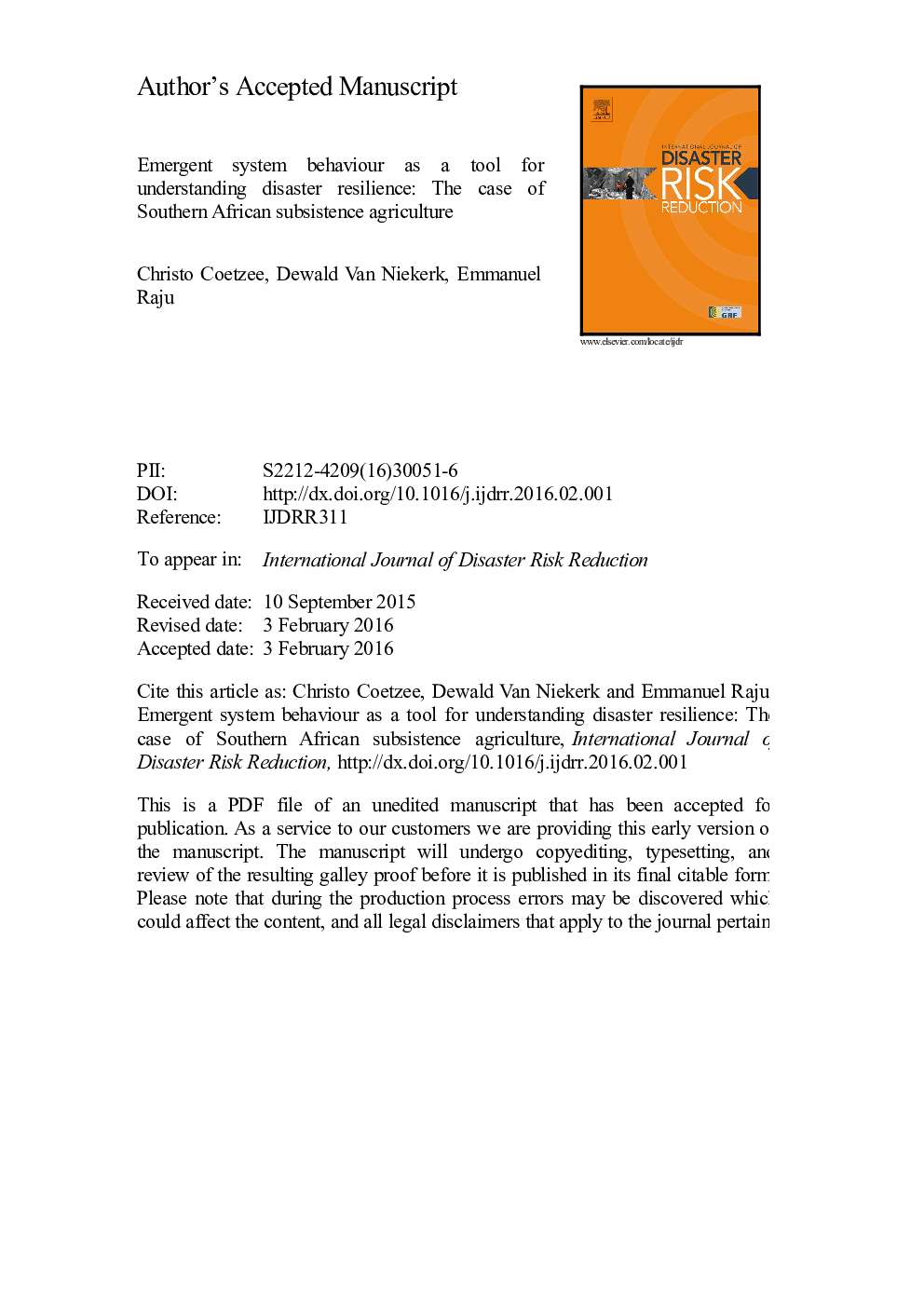| Article ID | Journal | Published Year | Pages | File Type |
|---|---|---|---|---|
| 7472710 | International Journal of Disaster Risk Reduction | 2016 | 23 Pages |
Abstract
Prominent international policy documents such as the Sendai Framework for Disaster Risk Reduction 2015-2030 and contemporary academic discourses on disasters reiterate the importance of understanding and prioritising building societal resilience. However, despite its prominent position in current and future disaster risk management, much confusion still exists on what exactly resilience entails and how it can be enhanced. This paper attempts to provide a perspective on this problem from the point of view of Complex Adaptive Systems Theory, with specific focus on the notion of emergence within adaptive systems. The paper explores the presence of emergent behaviour that could generates disaster resilience by reviewing statistical correlations between four agricultural interventions (small-scale irrigation system, farmers' associative mechanisms, appropriate crop varieties, and cropping techniques) and prominent indicators of disaster resilience (coping strategies and hazard adaptation/avoidance behaviour) in subsistence agricultural activities in Mozambique, Malawi and Madagascar. The results from the analysis illustrates that emergent behaviour in the form of various coping strategies and hazard avoidance behaviour is indeed observable in agricultural communities that use all or a combination of agricultural interventions such as small-scale irrigation systems, farmers' associative mechanisms, appropriate crop varieties, and cropping techniques. These resilience abilities are newly formed macro-level behaviours that emerge due to the interactions of agricultural interventions at a micro-level.
Related Topics
Physical Sciences and Engineering
Earth and Planetary Sciences
Geophysics
Authors
Christo Coetzee, Dewald Van Niekerk, Emmanuel Raju,
